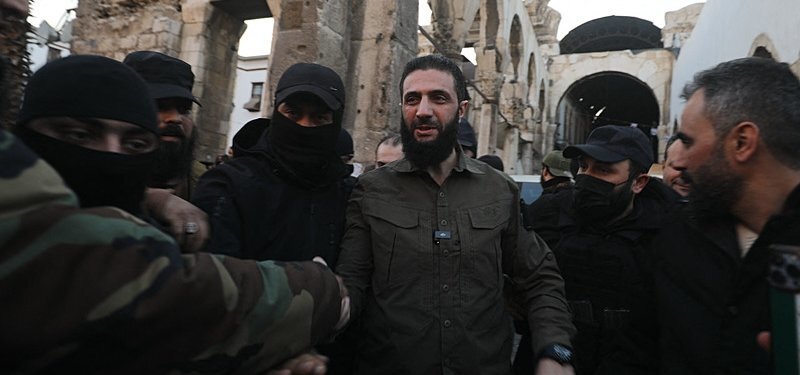Pacifying the pariah: HTS rebels wait on Israel hand and foot

TEHRAN - The inaction of Syria’s new rulers on taking any effective measures in the face of Israel’s acts of aggression against the country remains in the limelight.
Israel has carried out about 800 airstrikes in Syria since the Hayat Tahrir al-Sham (HTS) rebel group and its allies took over Damascus more than a week ago and toppled the government of president Bashar Assad.
Israeli attacks have destroyed much of the Arab country’s military infrastructure since December 8.
Israel has also sent its ground troops into the Syrian territory. Its military has seized control of a demilitarized buffer zone in the Golan Heights in Syria that was created as part the 1974 agreement with the Arab nation.
In addition to seizing the zone, Israeli forces continue to occupy some regions inside Syria including Quneitra close to Damascus in violation of the accord.
According to Al Jazeera, Israeli forces have destroyed roads, water networks and power lines in Syria.
On Friday, Syria’s transitional government under caretaker prime minister, Mohammed al-Bashir, condemned the Israeli air and ground attacks as “aggression” amid public pressure after days of silence.
HTS chief Ahmed al-Sharaa – formerly known by his nom de guerre, Abu Muhammad al-Julani, who is now Syria’s de facto leader, also reacted to Israel’s military actions in Syria.
The HTS leader says the rebel group seeks to avoid conflict with Israel, despite the ongoing Israeli aggression against the Arab nation. Israel's actions have "clearly crossed the disengagement line (1974 agreement) in Syria, which threatens a new unjustified escalation in the region", the HTS leader said in a post on Telegram.
He, however, said, “The general exhaustion in Syria after years of war and conflict does not allow us to enter new conflicts.”
Al-Sharaa has, in fact, admitted that rebels have no desire or intention to fight Israel which amounts to unconditional surrender to the occupying regime.
Numerous rebels currently governing Syria are former affiliates of ISIL and al-Qaeda who fought against the Assad government following the civil war ignited by the 2011 Arab Spring.
The rebels, during their occupation of certain regions in Syria amidst the civil war, refrained from directing any gunfire toward Israel. Similarly, the leader of HTS is now adopting the same approach.
Al-Julani and his fighters slaughtered many Syrians in the wake of the civil war. But the rebels now assert that they are seeking no conflict with Israel although the regime persists in conducting airstrikes in Syria and seizing additional territory.
ISIL and Al-Qaeda did not harm Israel when they were committing appalling atrocities in Syria. Similarly, the HTS does not pose a threat to the regime.
Al-Julani and his associates appear to be actors in a narrative orchestrated by Israel, which has crafted a script for Syria. The regime aims to extend its occupation in Syria, while the HTS fulfills its assigned role according to the directives of the orchestrator.
Leave a Comment